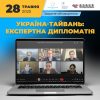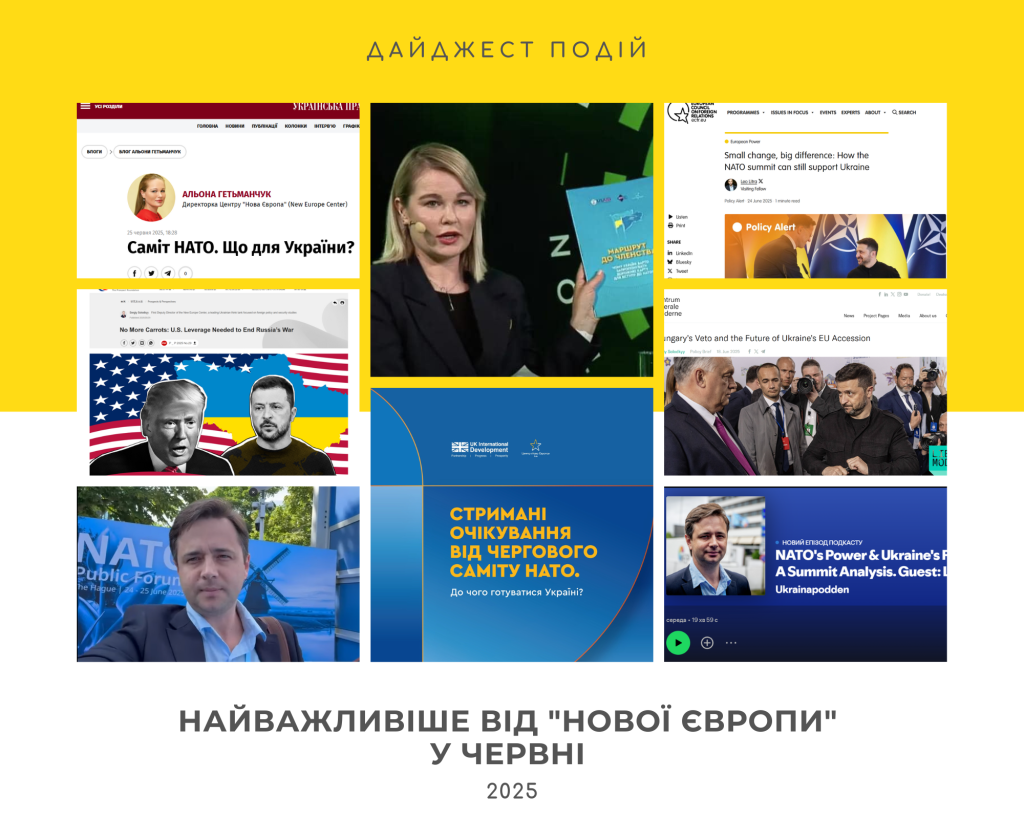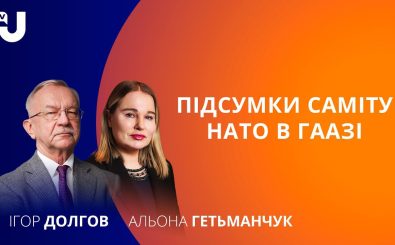The New Europe Center continues to report on the conference “Israel’s Experience of State Building: Lessons for Ukraine”, which was held on 12 June 2018 in conjunction with the Ukrainian Jewish Encounter. Below are the key theses of the speakers who took part in the plenary session.
Ivanna Klympush-Tsintsadze, Vice-Prime-Minister for European and Euro-Atlantic Integration of Ukraine
Despite the geographical distance between Ukraine and Israel, the two countries are linked by a number of invisible threads: historical, cultural, religious, and close human contacts.
- “Nearly half a million citizens of Israel are émigrés from Ukraine. At the same time, there is a more than 100,000-strong Jewish community in Ukraine. We are also linked by a tragic history. Sites that are extraordinarily important for Jewish historical memory and culture are located on the territory of Ukraine.”
- “The experience of Israel, a country in the Middle East, is familiar and understandable to Ukrainians. In a certain sense, Israel is a source of inspiration for Ukraine, which must defend its territory and independence on a daily basis.”
Israel, like no other country, can understand Ukraine, which lives in a state of constant stress and the military threat emanating from its hostile neighbor.
- “It is impossible to escape geography. We realized this in 2014, as well as the fact that only a powerful and modern army is capable of stopping an aggressor, not memoranda and declarations.”
- “In our country there are various threats, a diverse history of conflicts; likewise, there are various paths of resolving them. However, Ukraine, which is striving for integration with the Western world, is facing similar challenges in the sphere of international communications, public diplomacy (especially the creation of a country brand), educational policy, the development of innovations.”
- “However, we must also recognize differences. 1) The unification of the Jewish nation under the pressure of external threats and tragedies took place over centuries, but we have been traversing this path for only four years. 2) Israel is the largest recipient of US foreign aid, particularly military. Whereas support for Israel is measured in billions of dollars (over the next 10 years Israel will receive 38 billion dollars in military aid, aid to Ukraine is measured in millions (in 2018, Ukraine is set to receive 620 million dollars, of which only half is slated for military-technical needs).”
The Russian special services have often tried to play the “Jewish card” in Ukraine.
- “We also have to be aware of threats to our partnership. The issue is the use by the Russian special services, in emulation of their Soviet predecessors, of the so-called ‘Jewish card’ against Ukraine. The essence of this strategy lies in equating Ukrainian patriots with anti-Semites.”
- “Back in 2009, at a conference at the University of Illinois [Urbana-Champagne] the Ukrainian poet Moisei Fishbein clearly described the method used by the Russian special services in Ukraine: accuse some of exterminating the Jews, and others of ‘heroizing’ those who supposedly did the exterminating. In that way, Moscow sought to discredit Ukraine’s independence movement and to create a negative image of the country among Western states.”
Ukraine is striving to adopt Israel’s successful experience of building a strong, modern state with an innovative economy.
- “The development of the State of Israel has proven that war is not an obstacle even to innovations. On the contrary, the stressful security situation, the lack of natural resources, and an unfavorable climate (for agriculture, for example) have stimulated inventiveness and the development of technologies. Today Israel is one of the top ten most innovative countries (occupying tenth place, as rated by Bloomberg).”
Dan Meridor, President of the Israel Council for Foreign Relations, former Deputy Prime Minister of Israel (2009–2013)
During the building of the State of Israel, which over time has become truly successful, it was not possible to avoid tragic mistakes.
- “The main goal of the movement to create the State of Israel was the protection of Jews. However, this could not be done. Unfortunately, we did not create a state in good time. If it had been created at least a decade earlier, the Holocaust could have been avoided. The Jews would have had a chance to leave.”
- “Eighty years ago, the Jews were arguably in the worst position in its history. But in our time, after the founding of the State of Israel, the Jewish people are in the best position ever.”
One of the key questions pertaining to the founding of the State of Israel was the consolidation of people from various cultures.
- “During the building of the State of Israel the mission was to resettle Jews from many countries in the world in one place. Sometimes these were people who held diverse views, were from diverse cultures, who spoke different languages. In our country there was no choice: If we do not achieve success, we will not exist.”
The State of Israel was created and consolidated precisely via the democratic route.
- “Not that many states have been created on the basis of democracy. In the early years, when the Supreme Court and other state institutions were being established, we designated where the balance is between security and human rights.”
- “The balance between security and human rights is one of the main foundations of Israel. If this balance does not exist, then a democratic state will not exist either.”
Heorhiy Lohvynsky, Ukrainian MP, head of a group for inter-parliamentary relations with the State of Israel
One of Israel’s most important investments is people.
- “The main investment in Israel is people. Israel invests in its own people, who later develop the state and their own families.”
Ukraine should follow Israel’s example of how to become an important geopolitical player.
- “Every day in international arenas we see how Israel is creating the game. It is not a player, it does not participate, but it is creating this game.”
Israel is a great example for Ukraine in the sphere of innovations development.
- “Twenty-five years ago the State of Israel’s IT sector was very poor; it was just starting up. After a rather brief interval of time a whole sphere of business was built, which is now supporting the state with its taxes. The development of business and joint projects is a key solution both for Ukraine and for Israel.”
Eliav Belotserkovsky, Ambassador Extraordinary and Plenipotentiary of the State of Israel to Ukraine
During the creation of the State of Israel there were no other resources but human resources.
- “We were lucky, despite the fact that the state was being created in a desert, in a rather hostile environment. We were lucky because we did not have any resources besides human resources. Immediately after the founding of the State of Israel, we had no other choice but to invest in people. In general, the concept of Israel lies in building up human resources.”
- “The Israeli leadership had to create conditions for the residents of the country, so that they would not resort to emigrating. Furthermore, it had to create a state that would attract Jews from other countries, so that they would come and build up Israel.”
Ukraine should utilize its human capital more effectively.
- “Ukraine has immense human capital. From the moment it achieved its independence, Ukraine focused mostly on the extraction of natural resources, while people remained in the background. I believe that after the Revolution of Dignity the individual will be placed in the center, and money will be invested in people, not in natural resources.”
Democracy is the only path for Israel’s existence.
- “In our country there are no other alternatives besides democracy. Israel has a very clear-cut division of power between the legal system, the government, and the parliament, which is one of the main foundations of Israeli democracy. The existence of a dynamic political life in Israel is important, too.”
The main theses of the speakers of the Workshop №1 “National security and human rights: how to find a balance in ensuring public interests?”
The main theses of the speakers of the Workshop №2 “Solidifying the nation: language, education, inclusion”
The main theses of the speakers of the Workshop №3 “Israel’s public diplomacy: countering disinformation and promoting state image abroad”
The main theses of the speakers of the Workshop №4 Israel’s Relations with its Diaspora
The main theses of the speakers of the Workshop №5 “Israel’s Nurturing Innovation”
The main theses of the speakers of the Workshop №6 “The Defense Sector and Innovation: Israel’s Experience” (available only in Ukrainian)
Also see the photos from the conference and videos of the all Workshops







